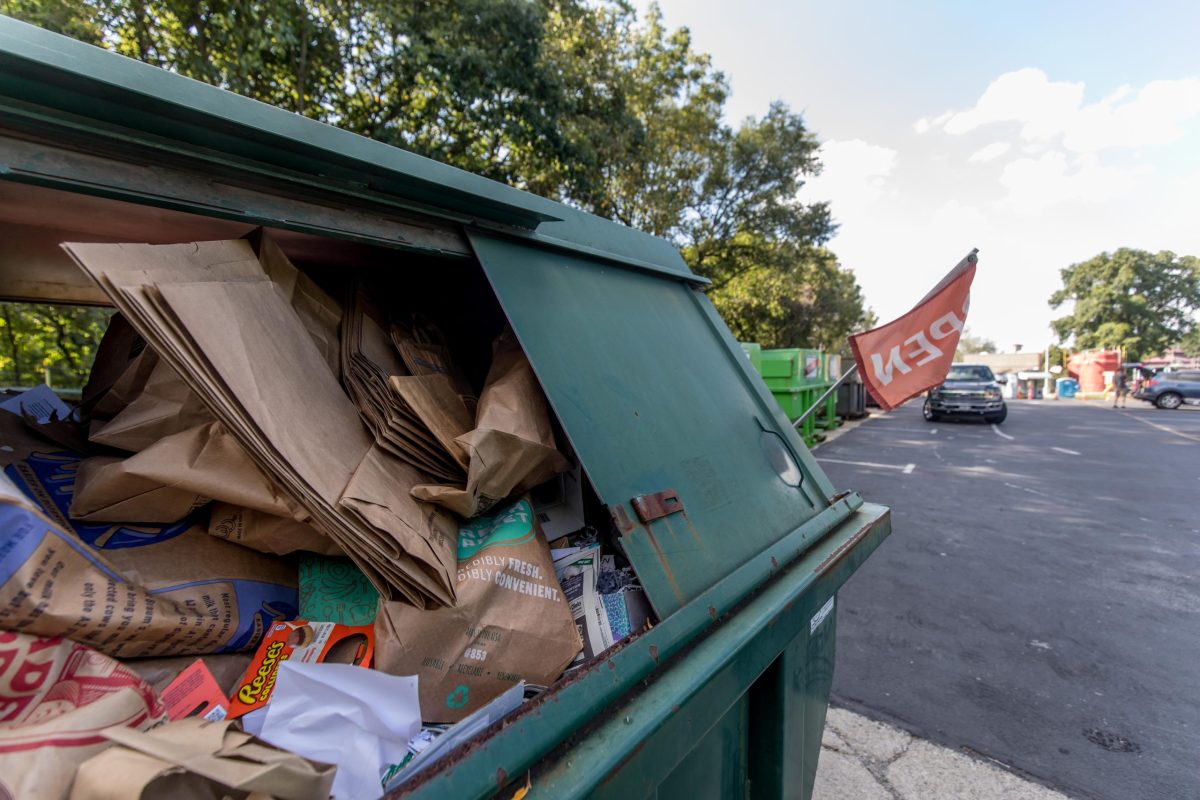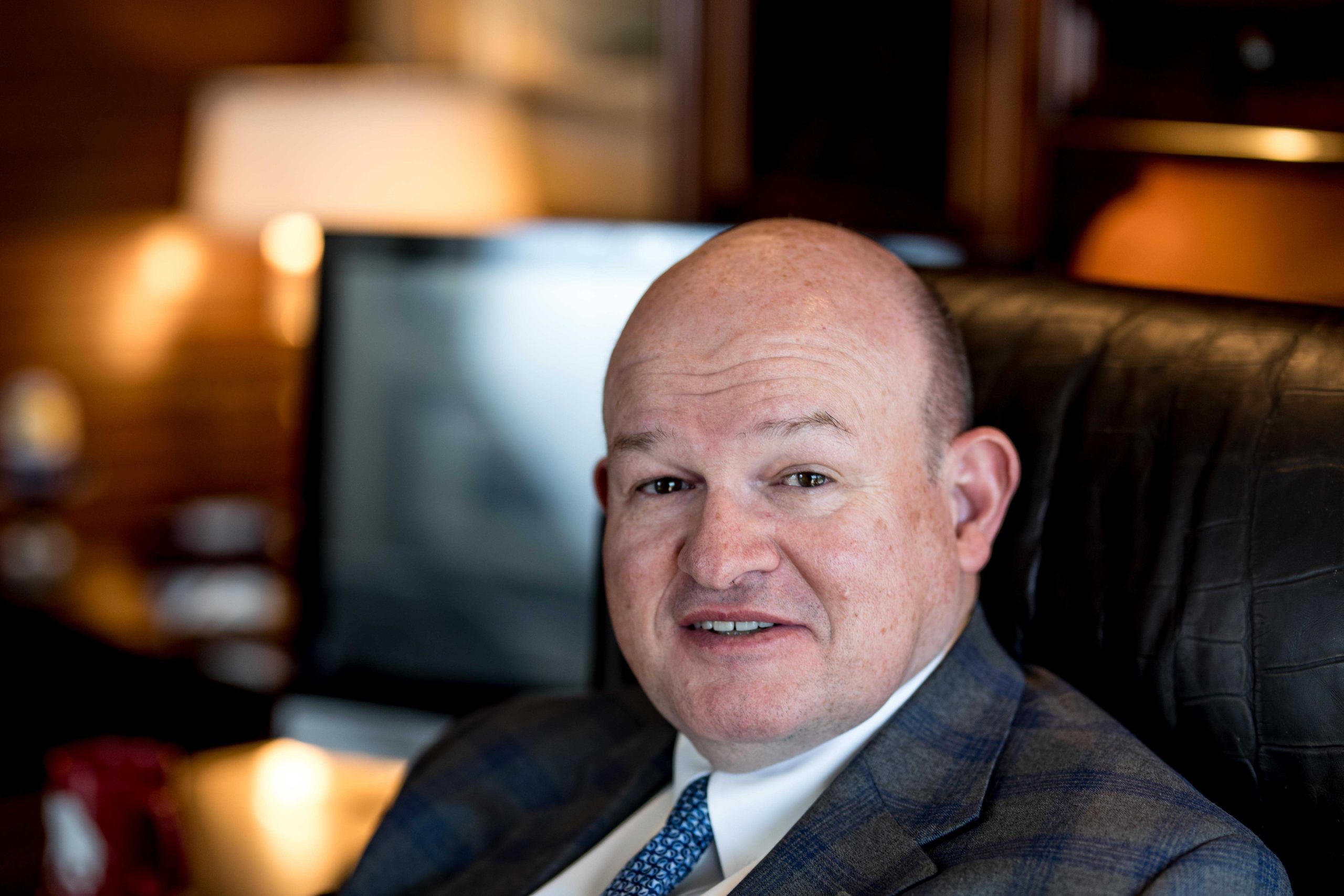IN-DEPTH |
Think of the Earth racing through the void of space, but picture it as a vehicle, its dashboard on fire with red warning lights, Dan Chiles tells me.
Ocean pollution. Warning!
Drought. Warning!
Record heat. Warning!
Melting glaciers. Warning!
Vanishing coastlines. Warning!
Think about this, too, Chiles says: The warming of the world will bring massive immigration to the Ozarks, and it won't necessarily be from across the Southern Border.
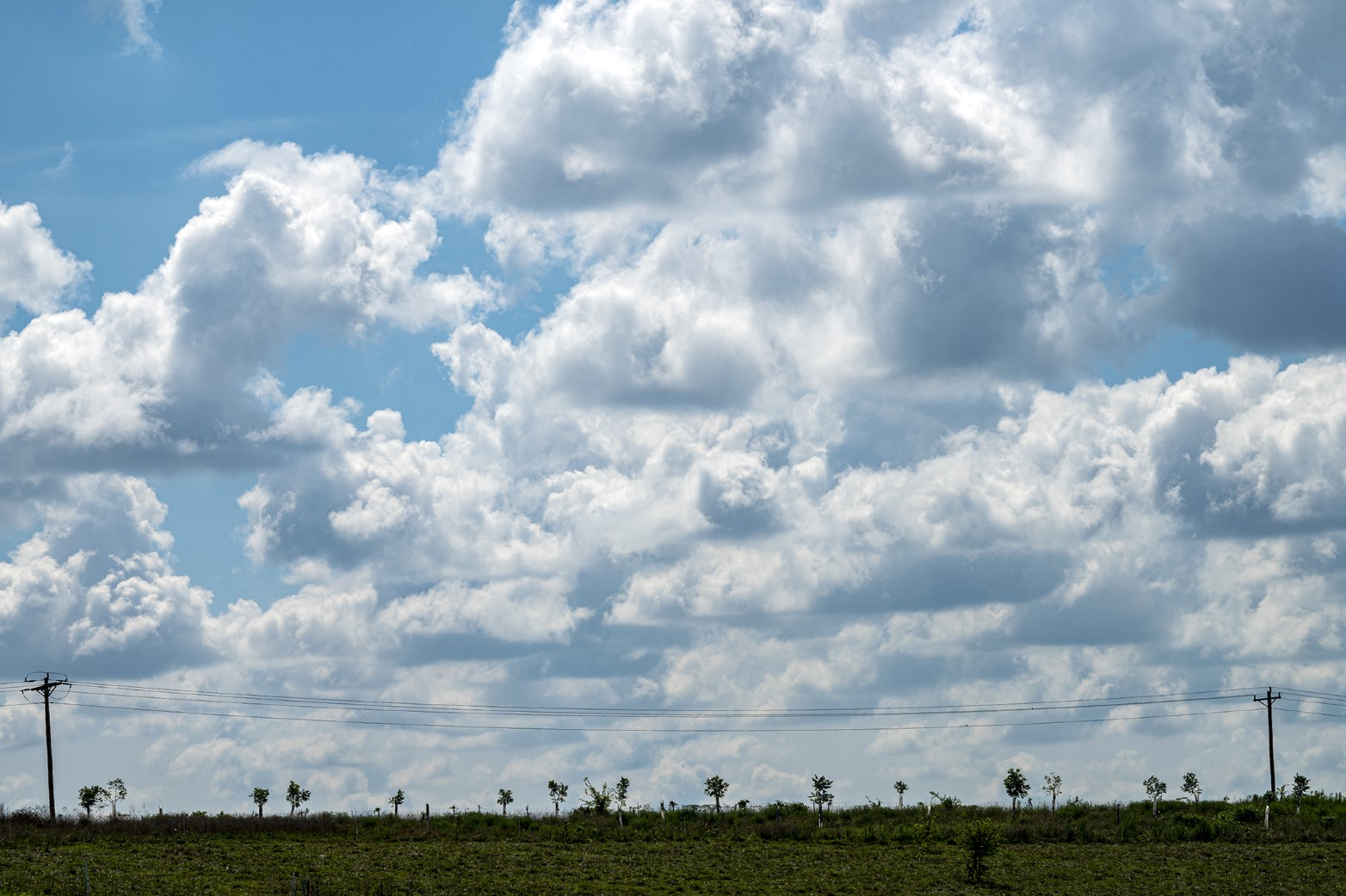
An environmental prophet?
Daniel Thomas Chiles, 69, is a friend of the Earth. For decades, he has been a prophet calling us to repent.
To repent of our wasteful, self-destructive ways. To repent from actions that destroy our planet. To repent from our voracious carbon footprint.
Chiles is a former Springfield City Councilman (2007-2011), a businessman who once, with his brother, ran a multimillion-dollar company, and a Harvard graduate (with honors) who holds 10 U.S. patents and several foreign patents.
Gifted with intellect, passion, stubbornness and an ability to write well and speak convincingly, Chiles has been the burr under many saddles, including some of Springfield's most established and powerful people and organizations.
Chiles believes changing our ways in how we live and use resources is urgently needed, and the future of the Ozarks specifically — and our planet generally — depend on it.

Places like the Ozarks will be a safer haven
“All these people on the coasts, they are going to leave and where are they going? I think they are coming here to the Ozarks,” he says.
The choicest real estate in our broiling future will be plateaus — and we happen to live on one: the Ozark uplift.
We're on high ground, away from receding coastlines.
It's getting hotter here, but it's not nearly as hot as many parts of the country that now regularly hit over 100 degrees. We also don't have hurricanes, tropical storms or an ever-expanding fire season.
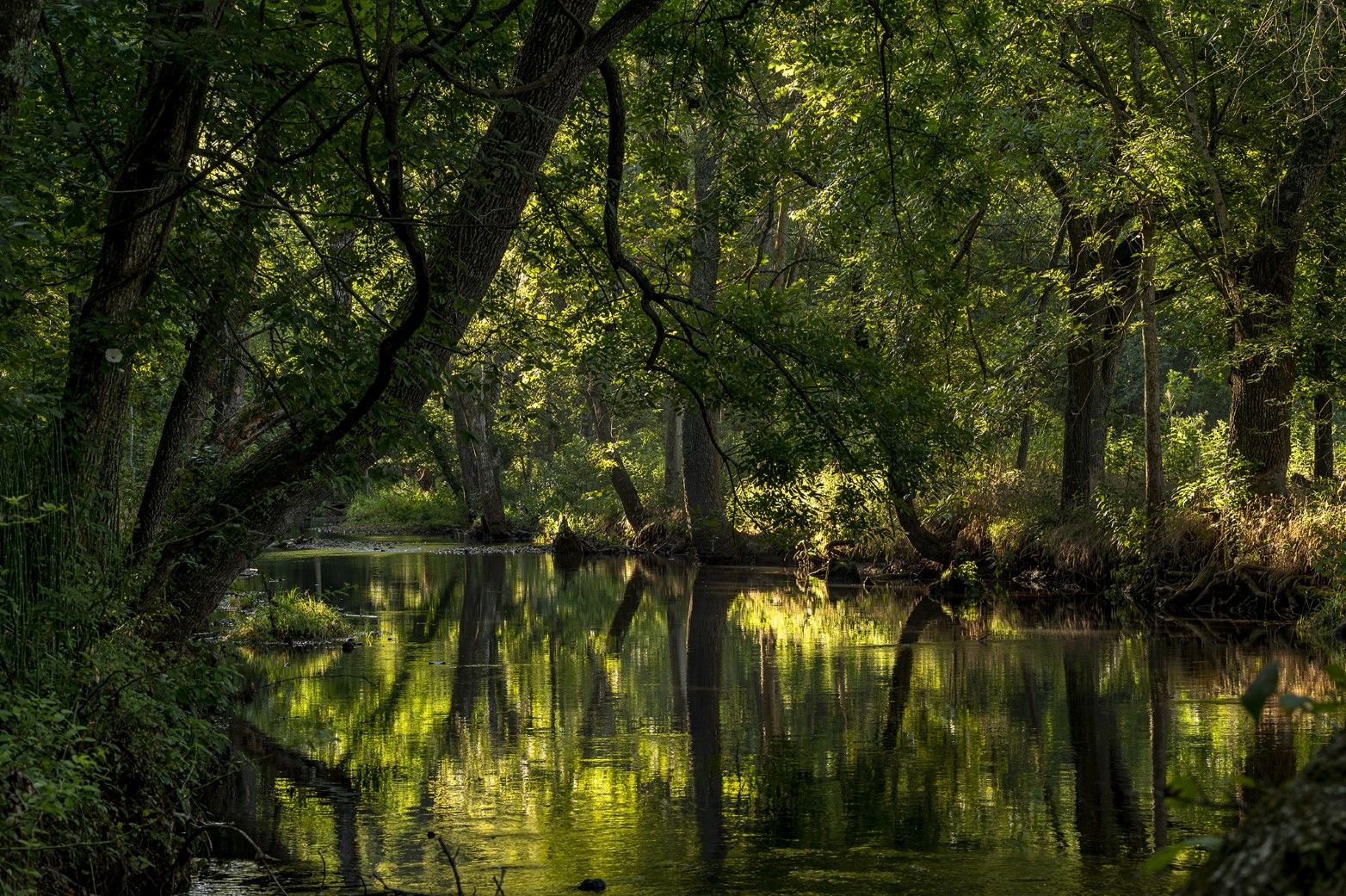
We have a solid water supply here, unlike the Southwest U.S., with its harsh demands on the drought-diminished Colorado River.
Are we ready for a deluge of people?
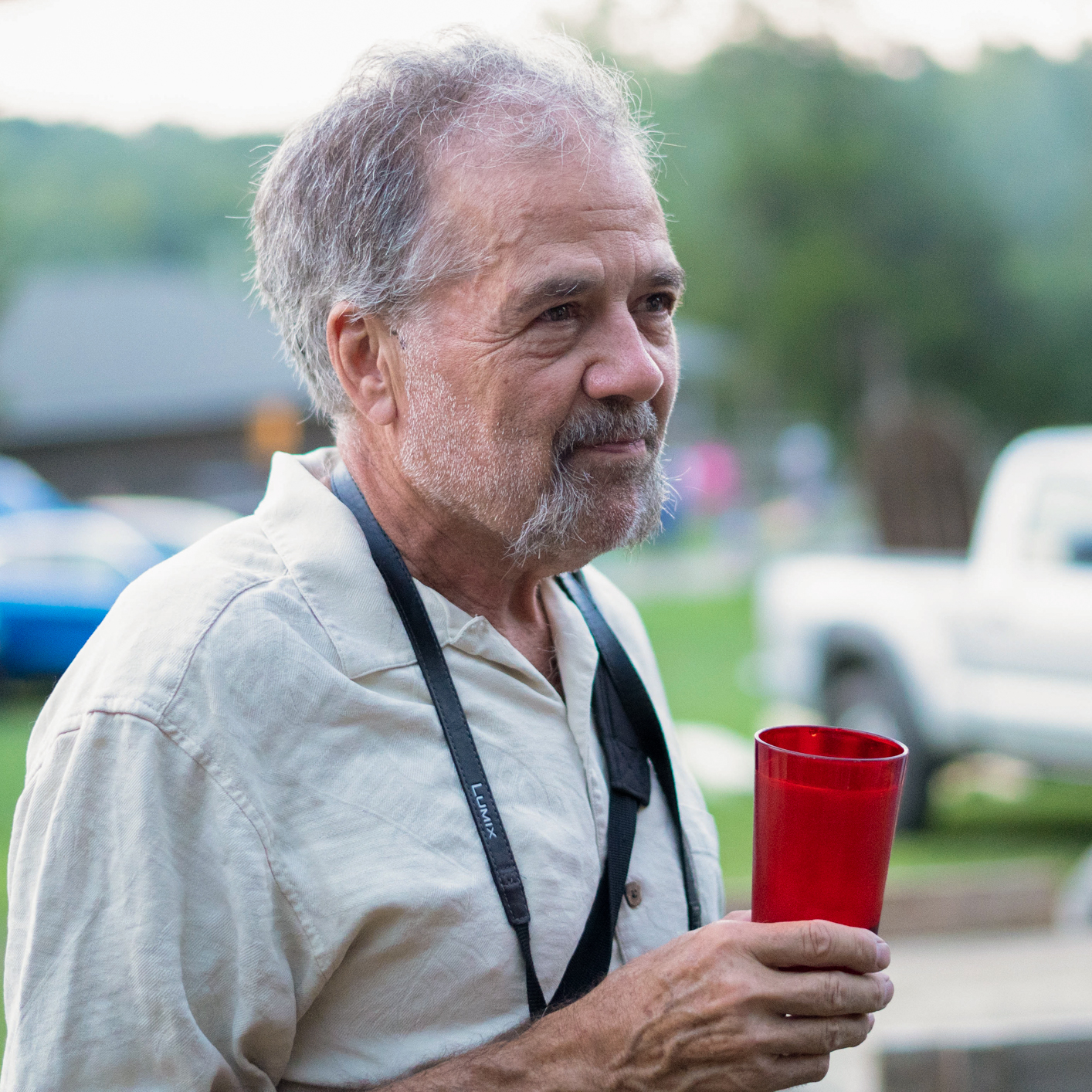
The Ozarks will be seen by many, Chiles says, as a safer haven from the calamities of climate change.
“The first wave of people coming here might have money,” Chiles says. “The second wave might have money, too. But the third wave has lost their homes to salt water. They have lost their churches. They have lost everything. Do you think the infrastructure is ready? The zoning? The regulations? Our water resources? I suspect not.”
A rant in two parts
In July, Chiles submitted a letter to the editor, which was published by the Hauxeda. He titled it a “Rant in Two Parts.” The gist? The world is on fire and nobody cares.
Read an excerpt of Chiles' letter here. (Click to expand)
“The world is on fire. You see the pictures of Arctic forests burning. The American West is burning. South America is burning. Europe is burning. And the Middle East would be burning except it’s already burned leaving only sand. The oceans are dying. The rivers and glaciers are disappearing. The planet-killing carbon pollution we dump into the sky today will be here for a long time.
“And nobody cares. NOBODY CARES. Oh sure, there’s some cranky scientists pointing out the obvious and using the same physics that powers your cell phone to predict the coming Hell on Earth. But I can’t find anyone in any positions of authority in our region who actually cares.”
Dan Chiles, July 2022
When not writing letters to the editor, Chiles relaxes on the flat roof of his solar-powered home on the 250-acre farm in Bois D'Arc he owns with his brother Mike.
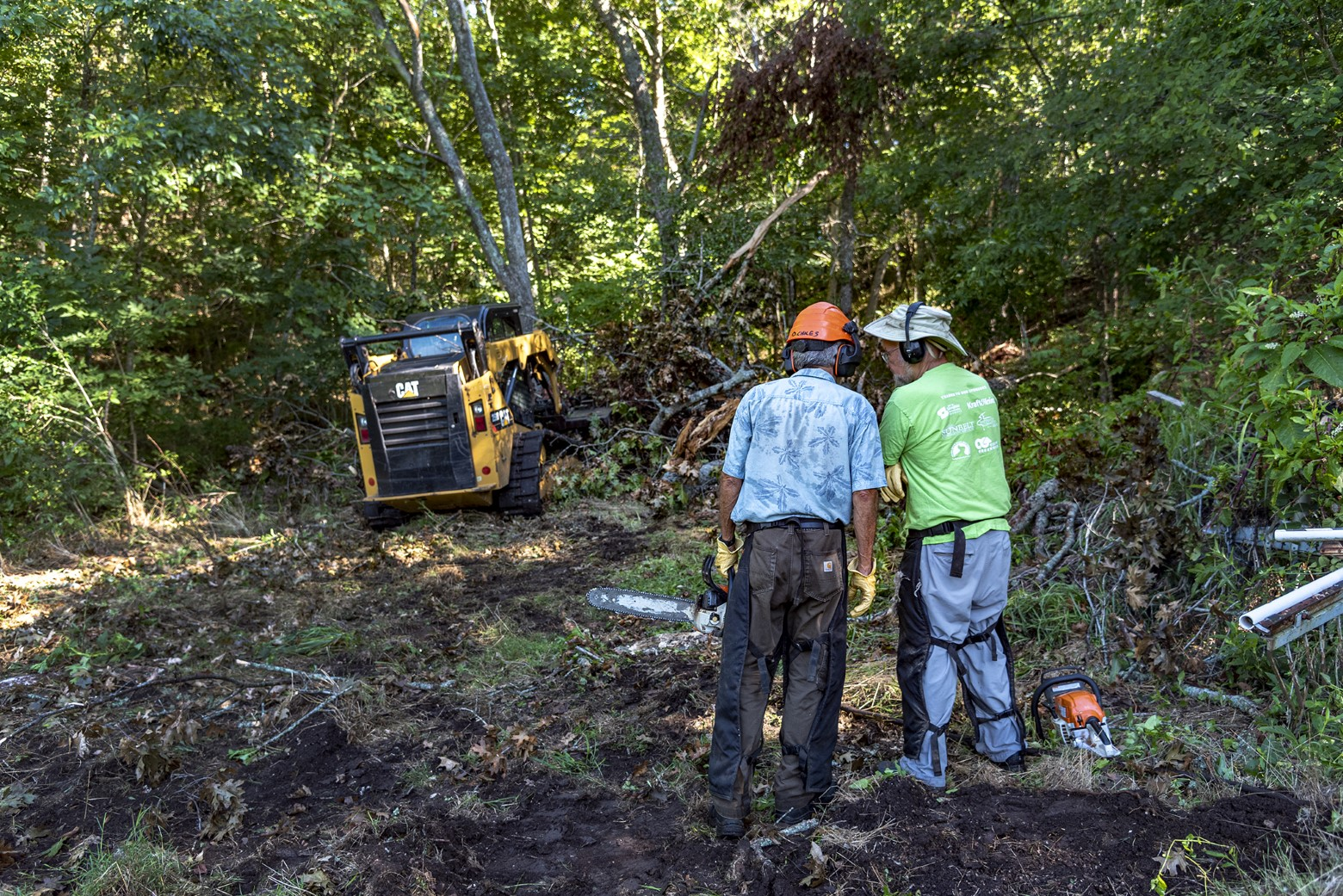
From the roof, Chiles has a celestial view. But even then, he grimaces when he looks into the light pollution of Springfield.
Why are the lights on at 3 a.m. at churches and businesses, wasting resources? he asks.
“In a world that is warming, why in the world is it necessary to light every (expletive) parking lot in Springfield, Missouri?”
He does occasionally catch himself.
“I did not mean to rage on, but, you know, that's what I do.”
Leaders forced to pay attention
When Chiles locks and loads, he's not interested in bagging sparrows.
In 2013, he took on CoxHealth, Ozarks Technical Community College, Missouri State University (and others) over their use of coal tar to seal and maintain parking lots. Coal tar contains polycyclic aromatic hydrocarbons, which have been linked to cancer.
(Two states in 2022 ban coal tar for use as a sealant: Minnesota and Washington.)
Chiles entered the fray armed with a study, paid for by the city, that discovered coal tar residue in the sediment of nearby waterways.
So Chiles sent an email to Steve Edwards, then Cox CEO and president, as well as hospital board members and, as is his custom, an editor at the Springfield News-Leader.
He caught their attention with the subject line:
Your amazing breach of medical ethics.
J. Howard Fisk was on the boards of CoxHealth and OTC, as he is today.
Fisk responded with this, according to a 2013 story in the paper:
“Mr. Chiles has made a point of attempting to insult and demean his friends and associates into adopting this study for a long time. It has been my opinion that if the toxic nature of these substances was significant that a national ban would be in place.”
Is Chiles a ‘canary in the coal mine?'
MSU President Clif Smart recalls the heated rhetoric of the coal-tar debate.
“He is a true believer,” Smart says of Chiles. “He believes in sustainability. The university also values those things.
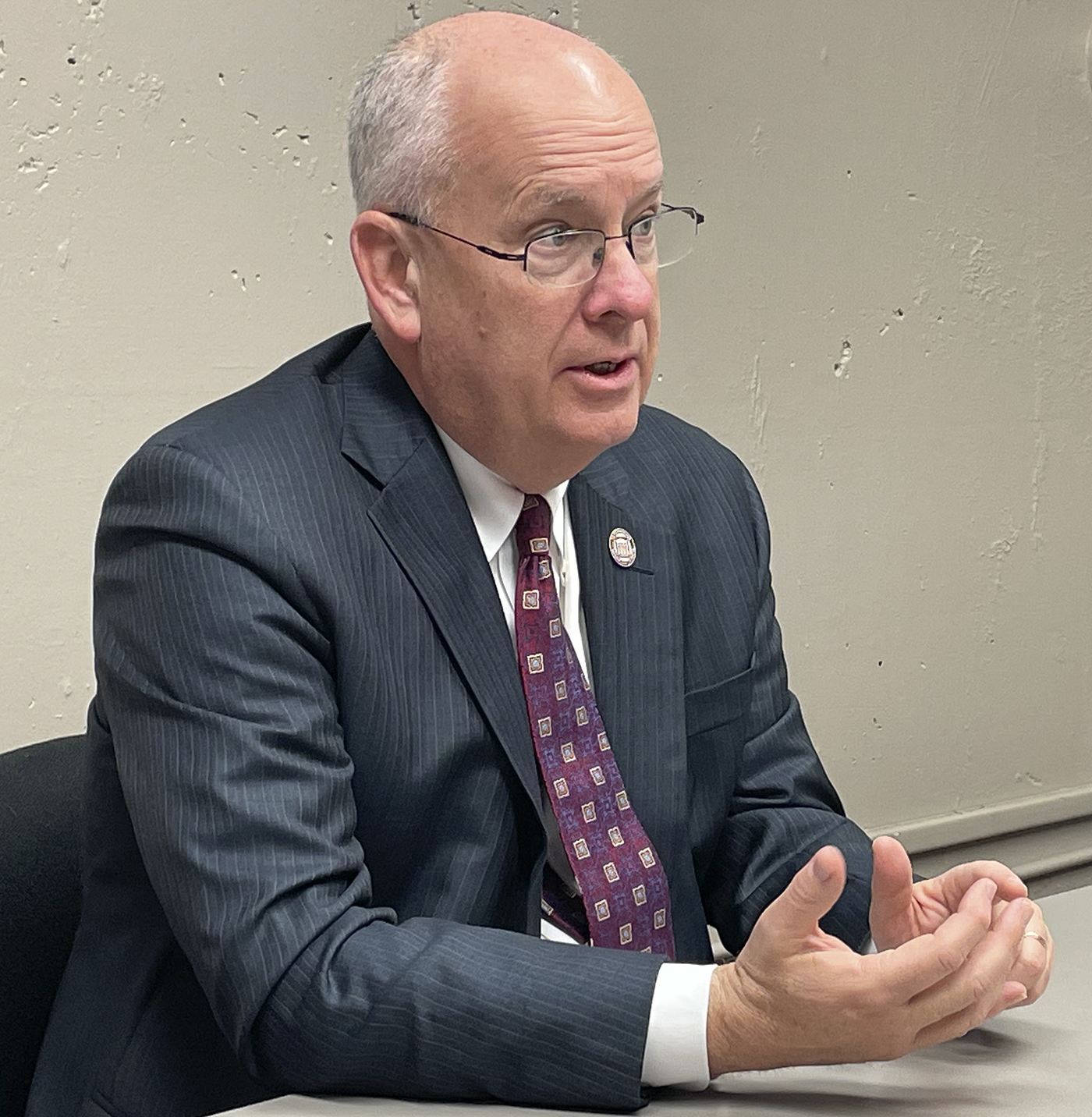
“I think that, in a way, he views himself as the canary in the coal mine,” Smart says. “He sounds the warning that there is danger. That is a useful purpose. But he is not the guy who has to then figure out how to maintain the parking lots.
“You have to be pragmatic on how you get there and the pace in which you get there.”
The bottom line is that Chiles made his point, Smart says, and the university changed the way it seals and maintains parking lots quicker than it otherwise would have. The last time it used coal tar was in the summer of 2015.
Don't call him an environmentalist
You would think Chiles is an “environmentalist.”
He's not, he says. He's an “environactionist.”
(Chiles already has staked a claim to the domain name “environactionist.”)
“Enough of this thinking about the environment,” he says. “Now we have to just act.”
Hope lies in action, he says.
“I am absolutely hopeful. We don't pull our hair out in despair. We get going.”
A few things that can be done on a personal level to lessen carbon footprint
A carbon footprint is the amount of greenhouse gas emissions from the production, use and end-of-life of a product or service. It includes carbon dioxide — most commonly emitted by humans — and methane, nitrous oxide and fluorinated gases, which trap heat in the atmosphere, causing global warming. Most of a person's carbon footprint typically…
Ex-councilman, entrepreneur and more
Dan Chiles, the middle child of three boys, has done many things. If his life were a meal, he's already devoured at least five courses.
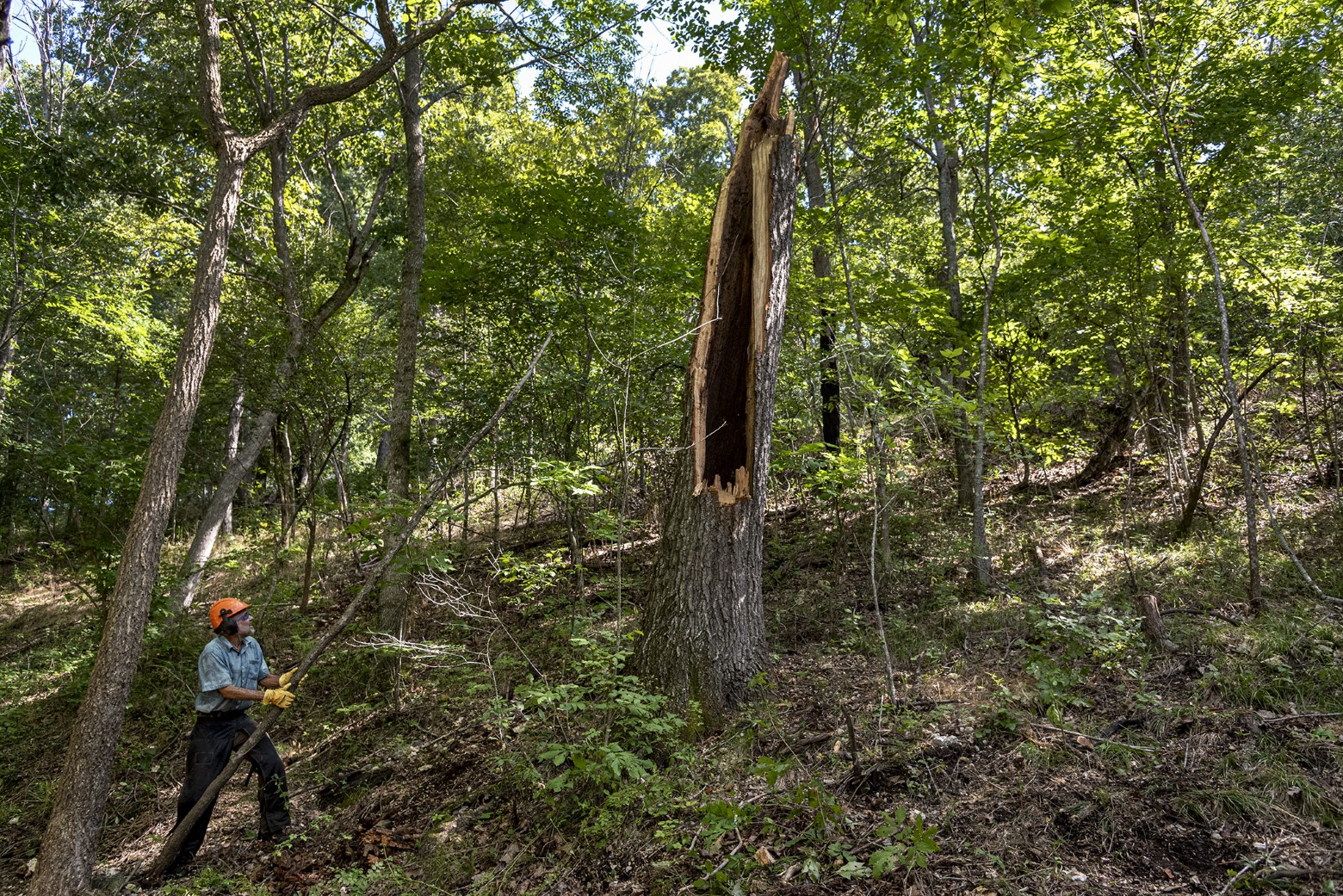
He is a log-cabin builder. An entrepreneur. A wooden-bridge builder. A sixth-generation Missourian. A prostate-cancer survivor. A daily reader of six newspapers and news sources. He was an altar boy.
For 36 years, Dan has organized a work group called YBees that does repairs and renovations at YMCA Camp Wakonda in Lawrence County.
In 1978, Chiles and brother Mike rode their bicycles from Springfield to within 50 miles of the Arctic Circle. For the return trip, they built a raft and took it 650 miles down the Yukon River.
He has been married 42 years to Margy, who grew up in St. Louis. They have four adult children and seven grandchildren.
“Dan wants to make a difference and wants to leave the world a better place,” says younger brother Jim, 67, an attorney with the Pollution Control Agency in Minnesota.
“He is short-tempered when it comes to people he thinks are just hard on the Earth or greedy or stubborn to no purpose.”
His focus today: the Rockspan tree farm
Dan and Mike live in separate residences on their farm, called Rockspan, named for a geographical feature on the land. Just about everything they do there is experimental; much of it involves trees.

Older brother Mike, 71, is Dan's best friend — and was best man at Dan's 1980 wedding.
They live and breathe this farm, but draw little income and no salary. Their one full-time employee is Will Chiles, Mike's son.
They want to know, for example: What type of trees should we be planting today in the Ozarks, knowing that southwest Missouri will soon be as hot as Phoenix?
That could happen as quickly as in 10 years, Dan Chiles says, but doesn't have to if we take small steps today.
The overarching goal is not to discover what works best for the Ozarks farm of today, but what will work best on the Ozarks farm of tomorrow.
They have transformed the acreage into a grand, rural experiment that is a testament to their commitment to Mother Earth, searching for ways to restore and replenish natural resources, such as soil, while farming.
When it comes to soil, think micro
The brothers are experimenting with “pollinator plots” to stimulate flowering plants to help species like honey bees and native bees.
They are experimenting with rotational grazing. The cows are quickly moved from one pasture to the next before the grass is eaten to its nub.
The idea is to always keep the ground covered with at least some grass, otherwise, the sun and drought bake the life out of the soil.
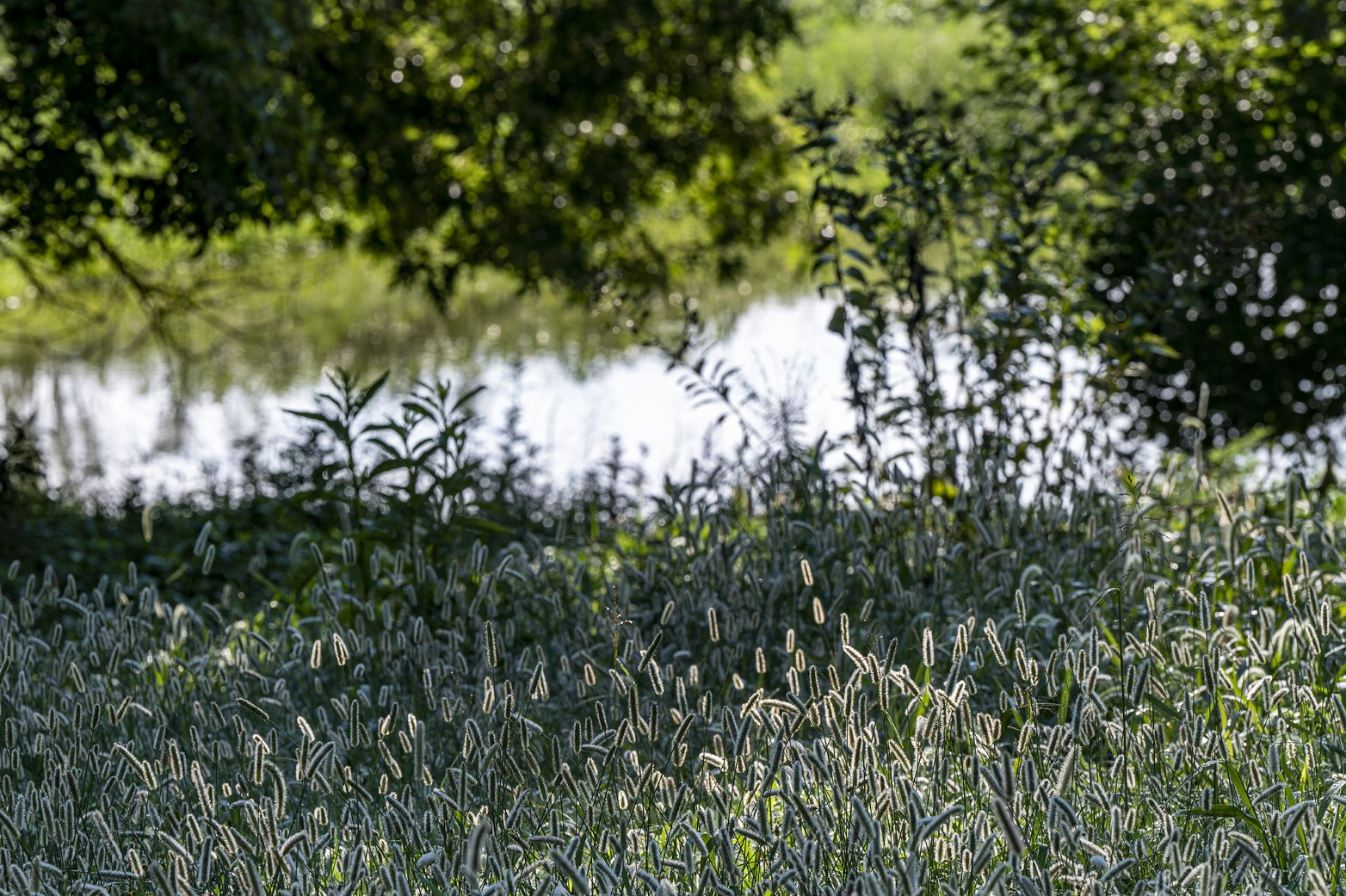
“There are billions and billions of little critters in the soil,” Dan Chiles says.
These unseen microorganisms need to be healthy if you expect the “big critters,” he says, the cows, to be healthy.
Many of the results of their experiments won't be known for years or even decades.
“As you probably noticed, we're not in a rush around here,” Chiles says. “Which is remarkable, considering how old we are.”
MSU professors occasionally stop by
They are experimenting with pawpaw trees, which produce edible fruit, to see if they can become a major cash crop in the Ozarks. On a ridge with poor soil, they have planted pecan trees. Is it a possible cash crop? They have planted white walnut trees, too.
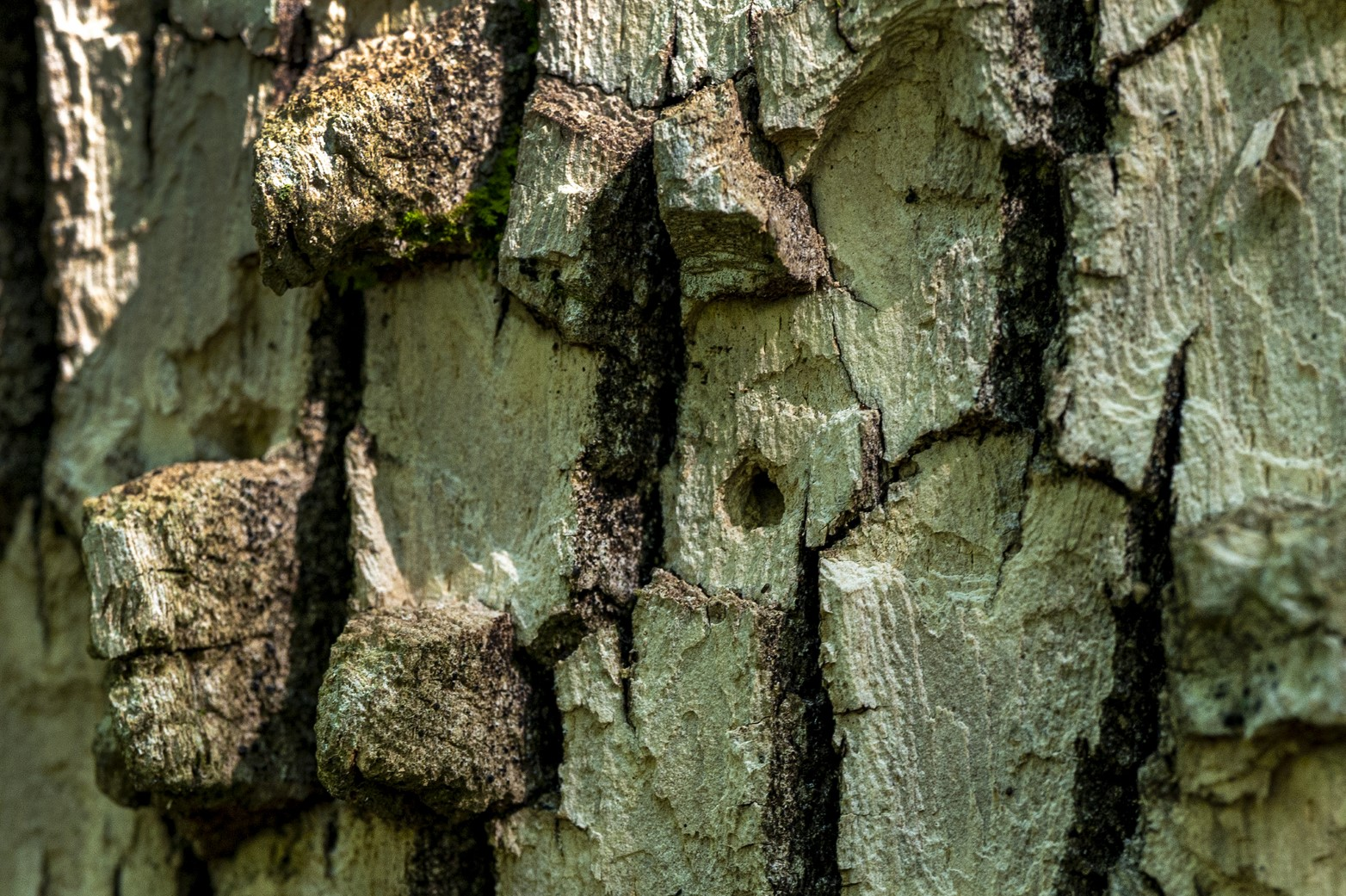
The brothers work with MSU professors who come to study the Sac River, which runs through the farm for three-quarters of a mile.
State and federal agriculture and conservation officials visit because they are interested in the experimentation.
The brothers are interested in the possibility of stabilizing the riverbed with native cane, which was once plentiful in North America.
In addition — and this is important — native cane absorbs and traps carbon.
“That's what we do here, guys,” Dan Chiles says. “We are constantly experimenting and making mistakes so other people don't have to.”
Reviving one chunk of Missouri land
The farm is undergoing an ecological rehabilitation, of sorts. A spring on the farm delivers an average of 3.5 million gallons a day. The water descends to the nearby Sac River.
“Our goal is to have the water cleaner when it leaves our land than when it arrives here,” he says.
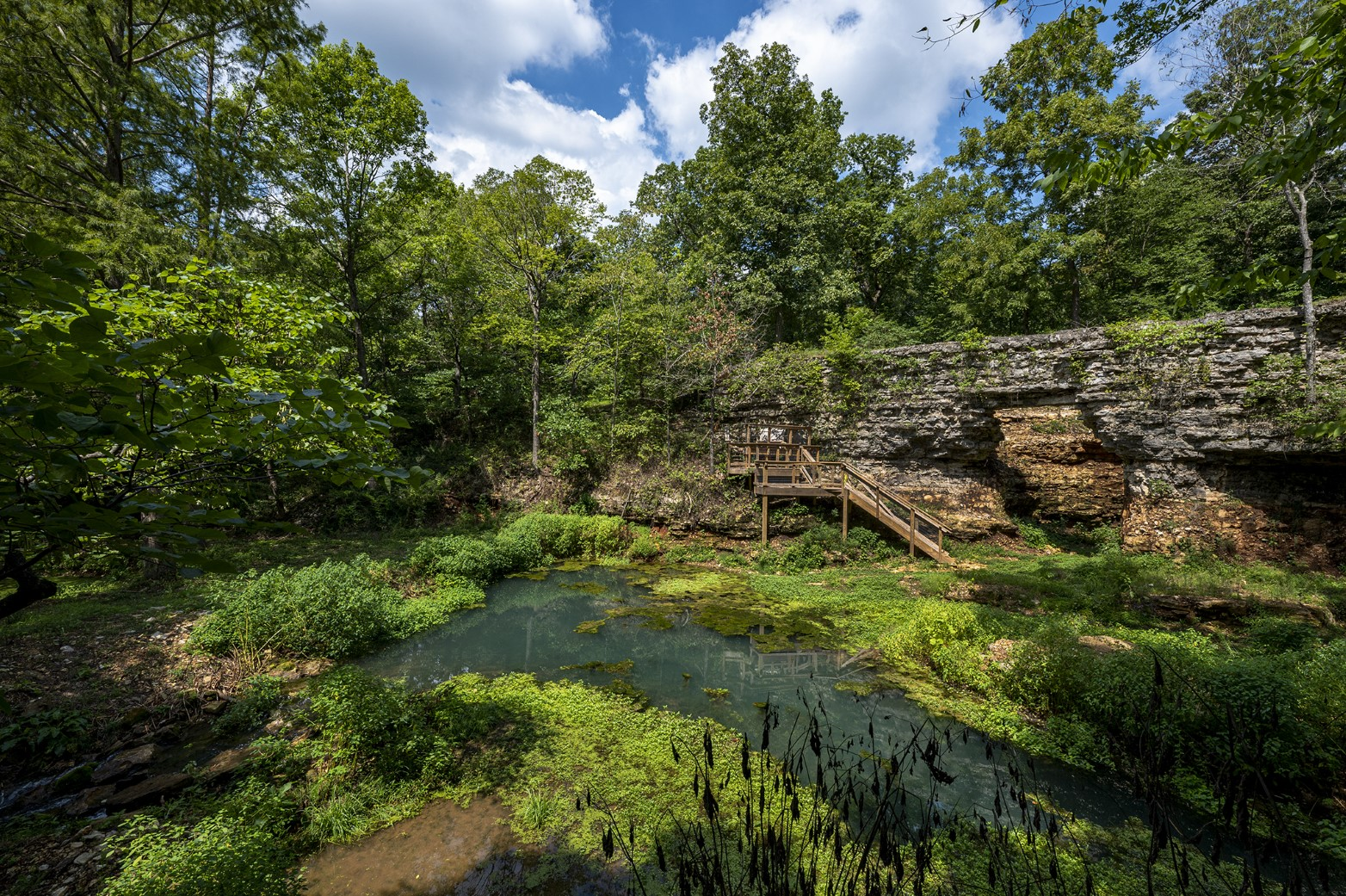
If you live in Springfield, he says, his efforts should matter to you. He points to the clear, rippling water.
“You guys are drinking this,” he says.
The Sac flows to Stockton Lake in Cedar County, an occasional source of drinking water for the city.
6,000 trees planted on 20 acres
Several years ago, their section of the Sac was, in the brothers' view, an environmental disaster.
“This was just a mud flat and full of manure,” Dan says. “It was an open sewer.”
Their father allowed cows he owned and ones kept on the property via leases to have full access to the river. On hot days they would laze there and defecate in the water.
Today, they have 20 cows; they belong to someone else. Fences keep them out of the river.
The brothers have planted 6,000 trees on 20 acres nearby to restore the river and its corridor.
“To most people this looks like brush,” Dan Chiles says. “To us, it is paradise.”
Can you be a prophet if no one listens?
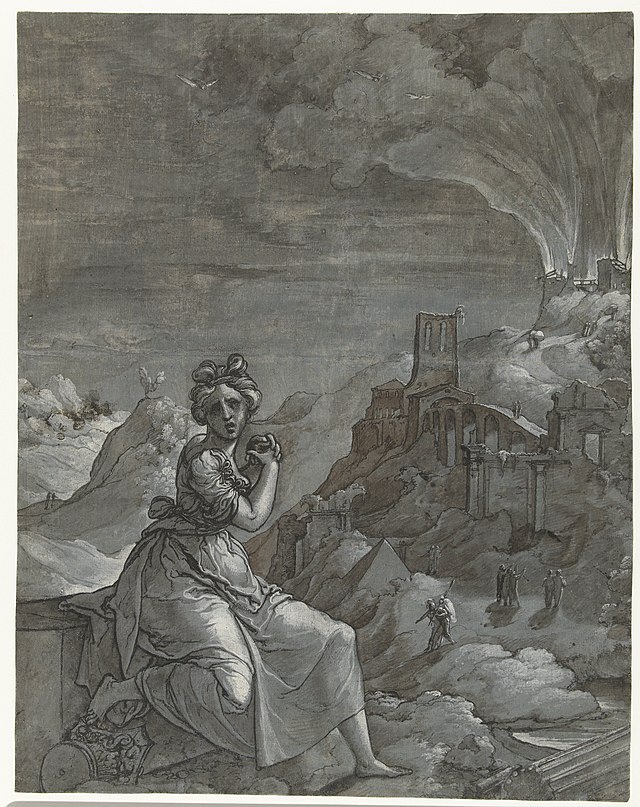
Chiles sees himself as a Cassandra character.
Cassandra, in Greek mythology, was a Trojan priestess dedicated to the god Apollo and fated to utter true prophecies that are never believed. Chiles feels like he's been pretty good at seeing the future, yet every time he opens his mouth, people yawn and go yada-yada-yada there goes Dan again.
Yes, says his wife, the Cassandra comparison is spot-on.
“It is not just climate change and environmental stuff,” she says.
Chiles was on the City Utilities Board from 1994 to 2000. He was chairman of the telecommunications committee.
His words went largely unheeded when he correctly foresaw how city broadband could be used throughout the city for internet connections for individual residents, not just by businesses and government.
He raised a flag for a new city flag
In 2010, Chiles and then-fellow City Councilman Doug Burlison proposed decriminalizing medical marijuana in the city. The full council voted it down.
Medical marijuana was approved by Missouri voters in 2018.
Strangely enough, it was then-councilman Chiles who, in 2011, proposed a new city flag.
The city adopted a new flag in January of this year.
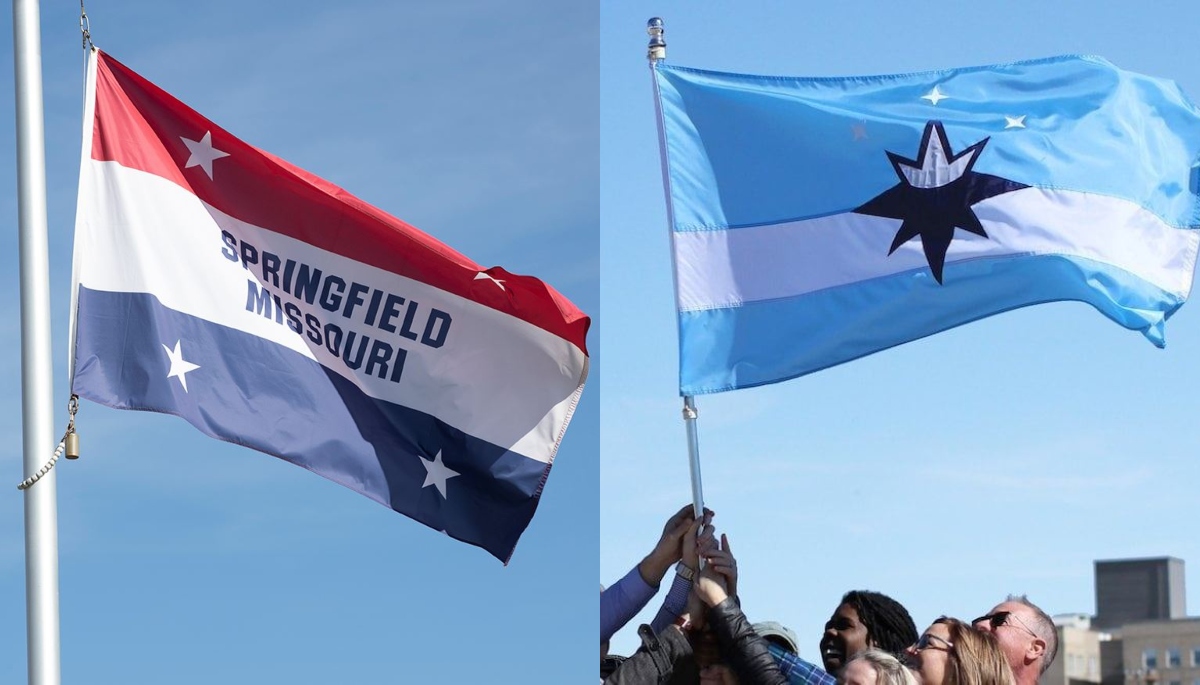
Chiles lives in a LEED-certified house
Rockspan is at the western terminus of West Division Street, well past the airport, where Division is known as West Farm Road 124.
The first building on their gravel road is Workshop 137.
Why 137?
Because, Chiles says, it's the number that reappears in quantum theory, and renowned physicists believe those three digits might hold the key to the universe.
The next building is Dan and Margy's house. It's a three-story, solar-powered house that's earned a high level of environmental certification (Leadership in Energy and Environmental Design, or LEED, platinum-certified).
During summers, Chiles goes topside to the flat roof to relax in a kiddie pool. From its shallows, he immerses and marvels at the vast night sky.
“If there's a Perseid meteor shower, I'm up there,” he says. “I go with the flow; the occasional comet. I just float in the water and watch the world go by.”
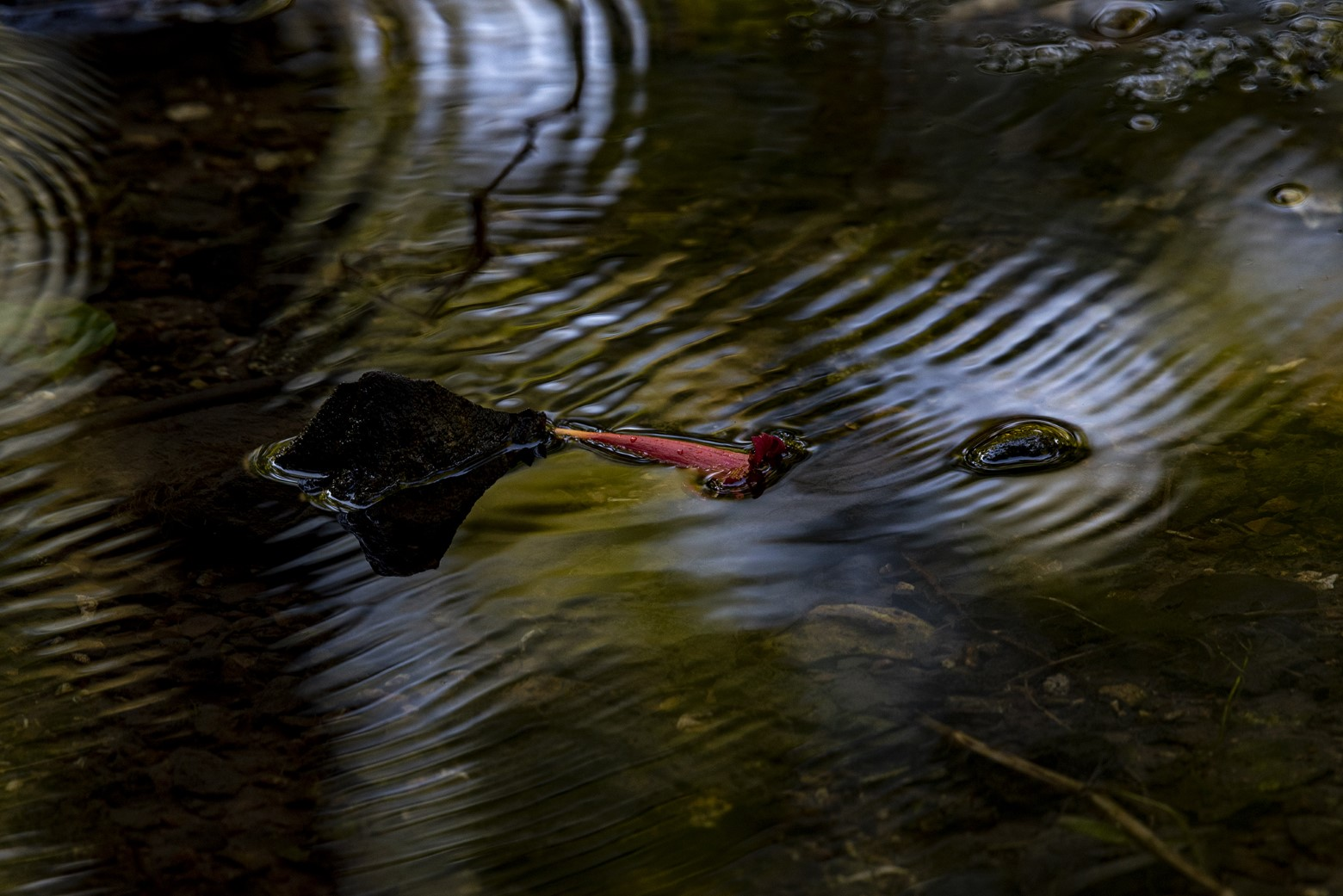
He left politics to care for aging parents
Chiles left politics after his father was diagnosed with atrial fibrillation, or irregular heartbeat. He moved to his parents' farm to help care for them.
His father passed away in 2015 at 91. His mother died two years later, also at 91.
The parents had lived in a house on the farm built by Dan and Mike in 1979. Yes, the brothers can build homes. It's the house where Mike and his wife Mary now live.
Dan and Mike owned and ran a multimillion-dollar business called Heatway Radiant Floors and Snowmelting. It sold radiant heating and snow-melting systems to customers who lived in areas with snow and ice and who, for example, had large parking lots or long driveways.
Their company was sued for millions by disgruntled customers because, according to the brothers, a part supplied by Goodyear Tire and Rubber Company failed.
They, in turn, sued Goodyear. They lost.
The brothers filed for corporate and personal bankruptcy in 2000 but rebounded when the assets of their former company were purchased by Watts Radiant, Inc.
The brothers were kept on for a few years to manage the company.
‘I was short. I was ugly. I was not an athlete.'
Even though he no longer lives in city limits, Chiles is as Springfield as you can get.
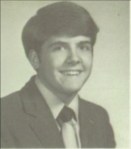
He was born at St. John's Hospital (now Mercy) and is a product of Springfield Public Schools: Field Elementary, Pershing Middle School and Glendale High, Class of 1971.
One of his fondest memories is rooted in eighth grade. He was editor of the school newspaper, the Pershing Reveille.
“They would take me out of class when someone important showed up. I could cover assemblies. I got to talk to the principal. I got to write editorials.
“This was happening to me. I was short. I was ugly. I was not an athlete.
“That was the most amazing experience of my life, and I have not forgotten a moment of it.”
Ex-mayor: ‘Smartest guy I have ever met'
When Chiles was on the city council, he was mayor pro tem, meaning he filled the role of mayor when Jim O'Neal, the elected mayor, could not.
O'Neal recalls Chiles' attempt to change the city flag in 2011.
“For some reason, and this is typical of Dan, he gravitated onto this flag deal, and he said, ‘Our flag looks like the rear end of a Buick,'” O'Neal says.
“At the time, we were dealing with the police-and-fire pension fund and a complete ban on smoking in public places in the city.
“… Dan was just hell-bent on ‘Let's get a new flag because this one stinks.' I could not stop him. Nothing ever happened because I think there were just more pressing issues at the time.”
There were times, O'Neal says, when city power brokers asked him (the mayor) to try to get Chiles (a councilman) under control.
“I said, ‘First of all, no, I can't control him. What do you want me to do?
“Second of all, he is the smartest guy I have ever met. Control him? Why? Because he has too many good ideas? Because he tries to get people to face reality?”
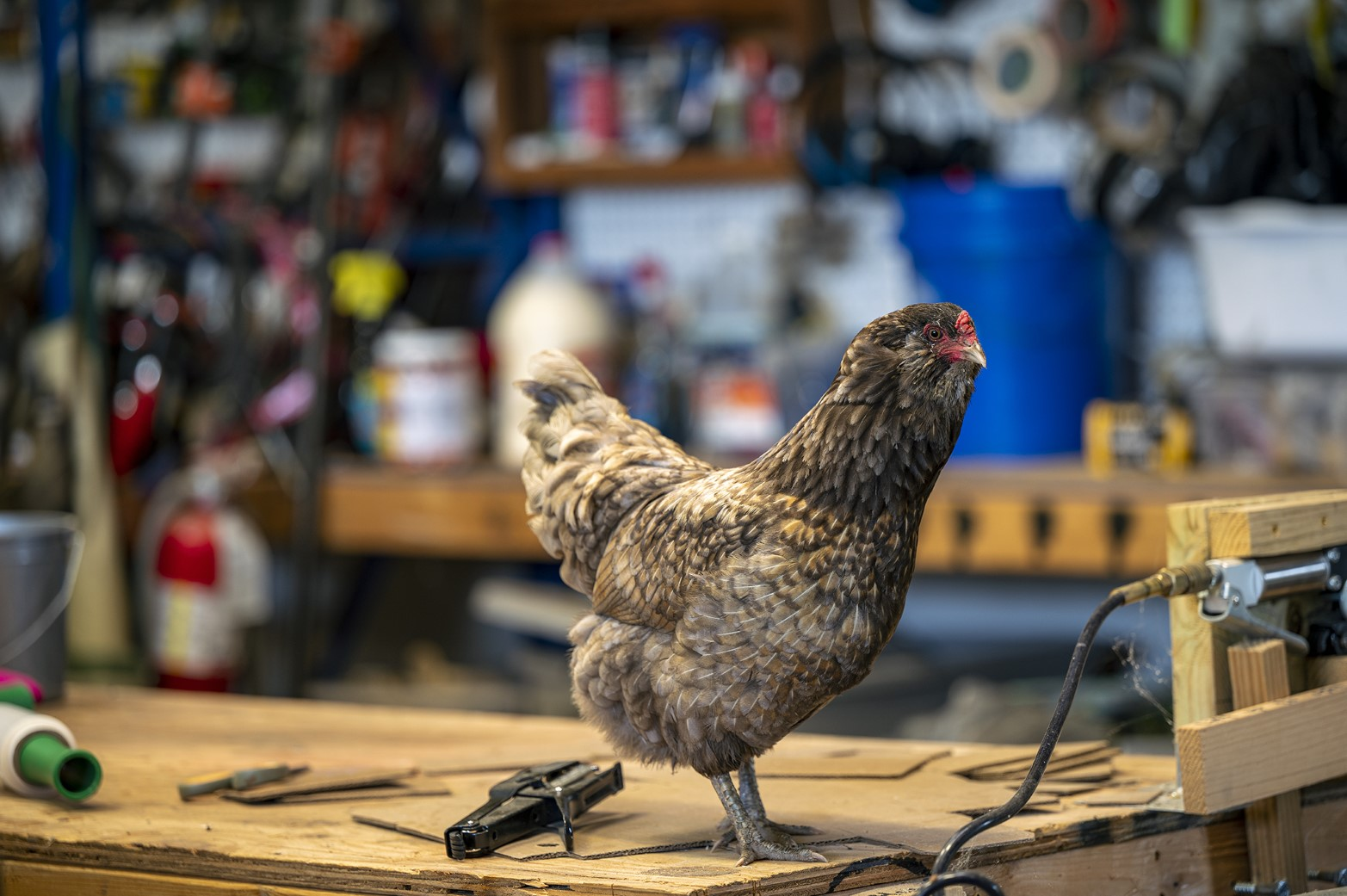
A prophet, a canary or a pain in the derriere?
Maybe Chiles is, in fact, a “canary in the coal mine.”
Or maybe he is, as he thinks of himself, a modern-day Cassandra.
And maybe — putting Greek mythology aside for a French word — he is a pain in the derriere.
But if you're a journalist, another possibility comes to mind.
Maybe Dan Chiles, at 69, in some way is still editing and writing opinion pieces for the Pershing Reveille.
Untroubled by subscriptions or page views, Chiles thinks big thoughts from his rooftop, gazing up in reverence.
Maybe he is a journalist-advocate on a mission to save our planet.


